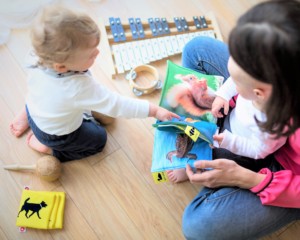 The New Year welcomes new resolutions for you and your child’s speech and language needs. We all know it isn’t always easy to implement new goals, but when it comes to your child, it can be the key to their success. Here are a few ways to implement speech and language resolutions.
The New Year welcomes new resolutions for you and your child’s speech and language needs. We all know it isn’t always easy to implement new goals, but when it comes to your child, it can be the key to their success. Here are a few ways to implement speech and language resolutions.
Ensure regular communication with your child’s speech therapist
We all get busy, it is easy to get behind or even lose touch with your child’s speech therapy. We recommend speaking with your child’s therapist about their current goals, how they are responding, how you, as a parent or caregiver, can follow up on these goals at home, and what is the next step on the agenda.
Get specific instructions from your child’s speech therapist on how you can help them at home
Find out what the targeted goals are for your child and some ideas so you can reach these goals at home. Also, how often you should be working with your child on these goals, what type of reinforcement or feedback you should be giving them.
Everyone working and communicating effectively together is the key to success
“Communication disorders are among the most common childhood disabilities—and they are highly treatable in most cases,” said Elise Davis-McFarland, PhD, CCC-SLP, ASHA 2018 president. “Yet even with all of the information available to today’s parents, our members report they are still seeing children much later than what is optimal for achieving the best outcome.”
It is estimated that 10 percent of children have some type of communication impairment. This includes language learning difficulties, stuttering, and speech production/articulation. These children are 4 to 5 times more likely to experience other language learning disabilities, such as reading and communication, than their peers.
Don’t delay if your child is showing signs of a speech or language delay
 “We know parents want the best for their children,” McFarland continues, “However, they may hear messages that encourage a ‘wait and see’ approach by suggesting a child may grow out of a communication issue. Unfortunately, this often is not the case. Delaying treatment means children may miss a critical developmental window where they acquire a majority of their foundational speech and language skills, which occurs between birth and 3 years of age. Hearing and listening to language is the primary way young children learn. The skills achieved during this time lay the groundwork for later success with reading and writing, academics, social interactions, and career options and advancement—making early intervention for any speech/language or hearing problem, preferably well before age 3, so important.”
“We know parents want the best for their children,” McFarland continues, “However, they may hear messages that encourage a ‘wait and see’ approach by suggesting a child may grow out of a communication issue. Unfortunately, this often is not the case. Delaying treatment means children may miss a critical developmental window where they acquire a majority of their foundational speech and language skills, which occurs between birth and 3 years of age. Hearing and listening to language is the primary way young children learn. The skills achieved during this time lay the groundwork for later success with reading and writing, academics, social interactions, and career options and advancement—making early intervention for any speech/language or hearing problem, preferably well before age 3, so important.”
Early intervention can have a big impact on your child’s development. Not only does it improve their ability to communicate, it improves how they interact, social skills, and emotional development. It also provides guidance and support for parents and caregivers. If you have any questions or concerns about your child, we encourage you to contact Orlando’s First Words Therapy. We take a holistic approach to speech-language-therapy to help your child communicate more effectively.


